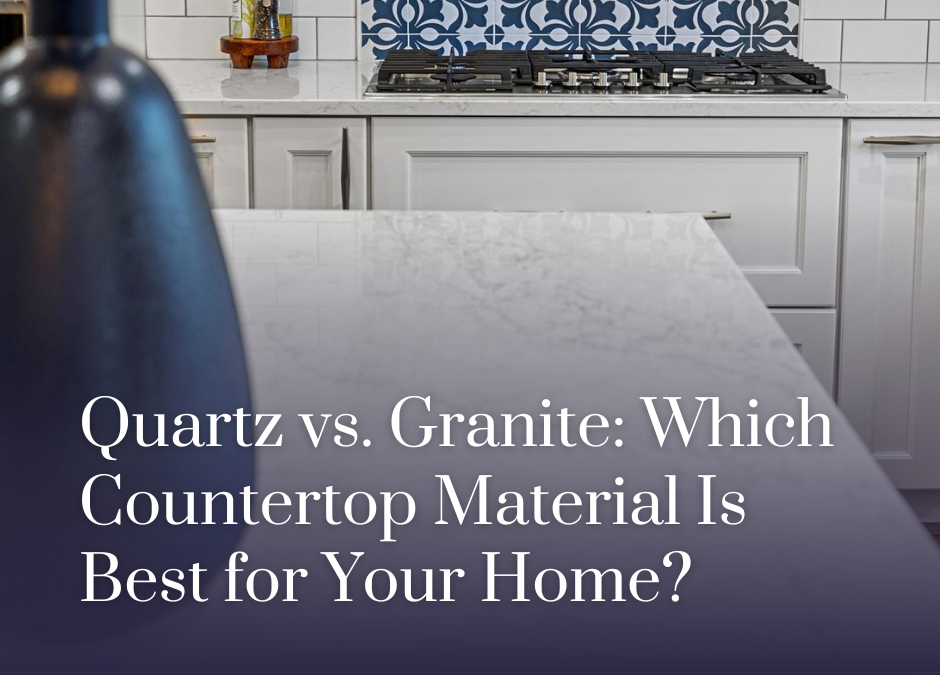When choosing between quartz and granite for countertops, there are several factors to consider, each material having distinct advantages and disadvantages. Here’s a breakdown to help you decide which is best for your home:
1. Appearance
- Quartz: Available in a wider variety of colors and patterns, including options that mimic natural stones like marble. It has a more uniform appearance because it’s engineered.
- Granite: Each slab is unique, offering natural beauty with varying patterns, colors, and veining. However, its natural patterns can be less predictable.
2. Durability
- Quartz: It is a non-porous material, making it resistant to staining, bacteria, and mold. However, it is not as heat-resistant as granite.
- Granite: Extremely durable and heat-resistant, but it is porous and may stain if not properly sealed. Regular maintenance is necessary to keep it in good shape.
3. Maintenance
- Quartz: Requires less maintenance because it is non-porous and doesn’t need sealing. Wiping it down with soap and water is usually sufficient.
- Granite: Needs to be sealed periodically (every 1-2 years) to prevent stains and bacteria buildup due to its porous nature. It can be more challenging to maintain than quartz.
4. Cost
- Quartz: Generally more expensive than granite, especially for higher-end brands or custom designs. However, prices can vary depending on the color and style.
- Granite: Typically costs less than quartz, though high-end granite can be expensive. Costs vary based on slab quality and rarity.
5. Environmental Impact
- Quartz: Made from a mix of natural quartz and resins, it can be less eco-friendly due to the use of synthetic materials and manufacturing processes. However, some brands offer eco-friendly options.
- Granite: Being a natural stone, granite is more eco-friendly, but it still requires significant energy for extraction, transportation, and installation.
6. Installation
- Quartz: Easier to fabricate and install due to its consistency and uniformity. It can be cut to fit custom shapes more easily.
- Granite: Requires specialized skills for installation due to the natural stone’s weight and hardness. Slab edges need to be polished, and it can be more difficult to work with.
Ultimately, the right choice depends on your aesthetic preferences, budget, and how much maintenance you’re willing to commit to. We are here to help you find the countertop that fits your lifestyle and aesthetic!

